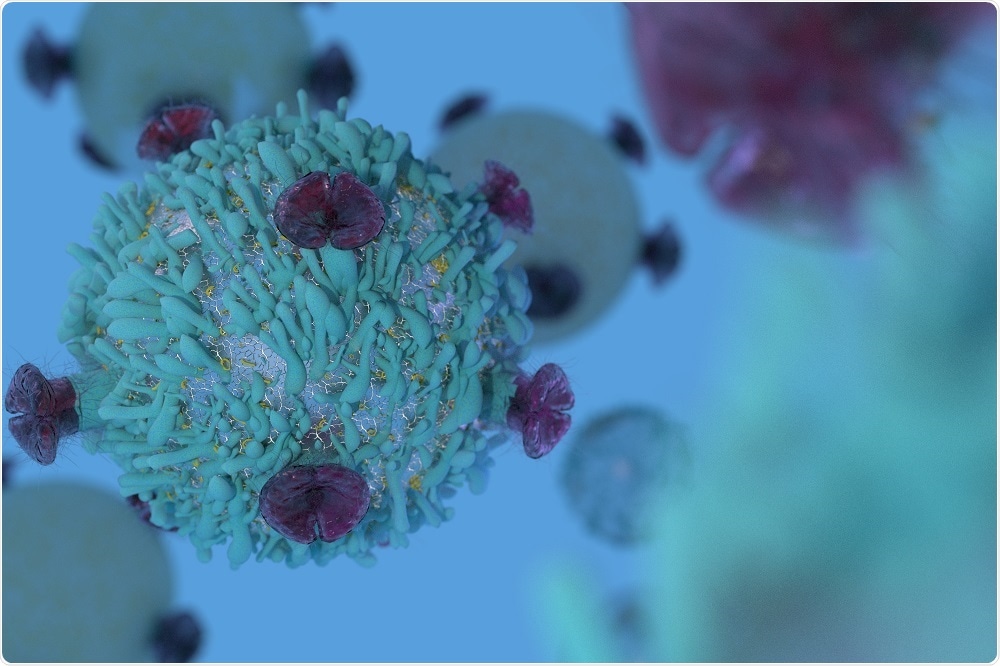
Overlooked immune cells could play a key role in cancer immunotherapy, claims new study
Cancer immunotherapy is an attractive and relatively newer method of treating cancer by enhancing the combat-readiness of the host immune system against cancer cells. It has succeeded with some refractory tumors. However, it doesn’t always work, and the question remains, why not?

CI Photos | Shutterstock
Researchers in this field have mostly examined the role played by CD8+ cells, a type of T lymphocyte which recognizes and eliminates cells in the body on which cancer antigens are found. A cancer antigen is an abnormal protein formed from a mutated gene.
In this process, the contribution of CD4+ T cells to the fight against cancer antigens was overlooked, but these cells have gained new importance following the publication of a study in Cell, on September 20.
The new study revolves around a bioinformatics-centered analysis of the Major Histocompatibility Complex (MHC), a molecular family found prominently on the surface of most of the cells in the body. There are two types of MHC molecules, namely, MHC-I and MHC-II.
These are concerned with presenting antigenic molecules from every type of antigen within the cell, whether belonging to the cell or not. Only then can these antigens be recognized by patrolling T cells. If they are “self” antigens, the T cells do not react to them. However, if the antigens are “foreign”, either from viruses, bacteria or oncoproteins, instant T cell-mediated killing of the infected or tumorous cell occurs.
MHC-I molecules are found on all cell surfaces. MHC-II molecules are found only on the surface of immune cells, like macrophages. These molecules are both more complex and able to bind antigens of a greater variety than can MHC-I molecules. The MHC-I and MHC-II molecules thus complement each other, making it less likely that a mutated cell will escape both systems.
An older study by the same authors published in Cell had already revealed that a cancer antigen bound by an MHC-I molecule was unlikely to surface later in any tumor developed by that individual. This is because any antigen presented by the MHC-I system leads to the immediate elimination of that cell.
Conversely, if the MHC-I molecules cannot present a particular antigen, it escapes surveillance and may eventually be found in a tumor in that individual. The less the number of cancer antigens recognized by the MHC-I system, the higher is the individual’s risk of developing cancer at an earlier age.
This type of research could ultimately help to predict which type of cancer a person is at risk for, the probable tumor behavior and the potentially useful treatment methods, even before a tumor develops.
The current study focused on the specific importance of MHC-II in immune cancer surveillance. Using computational biology, researchers analyzed data obtained from The Cancer Genome Atlas (TCGA), which is a database set up by the National Institutes of Health containing information on the genomes of thousands of human tumors of many types.
They retrieved data on the MHC-II antigen-presenting capability for 1018 cancer antigens, in 5942 tumors, scoring the tumors accordingly. As expected, antigens recognized by a person’s MHC-II molecules were unlikely to be present in a tumor developing in that individual, and vice versa. This association was similar to that observed for MHC-I tumor antigen recognition, but even stronger.
The surprise was finding that unlike MHC-I antigen recognition, the number of cancer antigens presented by the MHC-II system does not affect the age at which cancer eventually develops, at least according to this very early study.
More research is needed, because MHC-II molecules are more complex and recognize a wider range of antigens. More advanced tools are also required. However, the authors hope to see increased interest in evolving personalized cancer immunotherapy based on both MHC-I and MHC-II antigen recognition data.
For instance, readouts of MHC-I and MHC-II antigen presenting profiles could explain why patients respond differently to the same immunotherapy, or help predict the individual’s reaction to treatment. This can avoid the use of ineffective therapies, and thus bring down the rate of potentially serious adverse reactions.



































No hay comentarios:
Publicar un comentario